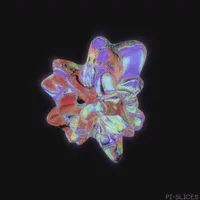a gentle reminder in change
A big theme that’s been present in my life lately is that of change. I’ve even written about it before, which goes to show just how impactful it is for me. My theory is that my awareness of it leads to the magnification of its apparent omnipresence, but in reality it’s always been there and always will be, whether I choose to be observant of it or not. I try to make it a big point to really see change as it’s happening, whether it’s on a personal scale (such as my gradual progress in the gym), or on a more worldly level (like the changing of the seasons). Basically, I’m trying not to let life pass me by and fall into a perpetual fugue state where I just go through the motions. It’s so easy to fall into the trap of being jaded, and that can be very dangerous.
All this brings me to my main point: I’ve been noticing how I’ve been changing. Inner metamorphosis is much subtler phenomenon to observe compared to the more obvious external world, which is why so many people seem to stay stagnant in their lives. Perhaps it’s due to a fear of what they will find, or because they simply can’t be bothered to sit still and take a long, hard look at themselves. Or maybe it’s a reluctance to change in the first place. Our inner world, including our own perception of ourselves, is the only thing in this world that we have some semblance of control over, so why on earth would anyone want to purposefully shake up an identity that they can take refuge in?
Allow me to elaborate one step further: people like to have a preconception of themselves and of who they are, and they reject anything that threatens this. That’s why attachment to the ego is so powerful: we equate our being to this concept, and our ego does anything for self-preservation, since all it is concerned with is survival. But it is a fool’s thinking that a concrete sense of self can be sustained by immaterial mental thoughts and opinions.
But for authentic growth, we must be willing to drop this notion of who we are, or, more accurately, who we think we are. Let go of the person you used to be. Stop clinging to a version of you that’s dead.1 We are in constant flux, not at all unlike the turbulent ocean or the swirling galaxies. Instead of thinking of yourself as a rigid vessel with hard boundaries, think of yourself as an ever-changing, formless essence in perpetual motion. It’s never too late to drop an identity, to begin inner work, to mold yourself into something new.

Once you’re able to grasp this concept and apply it to yourself, try doing it to others. The process is the same: recognize that they are shifting personas and that they change too, not unlike you. This exercise is more challenging because unlike yourself, you cannot change them. They are who they are, whether for better or for worse, and there is virtually nothing that you can do about it. So on top of being a lesson on observance and change, it’s also a lesson on acceptance. Not necessarily accepting them and their character, but accepting the reality of this truth.
And apply this ad infinitum. Nothing is fixed. People, nature, emotions, thoughts, processes, none of it. Everything perpetually changes form. Modern science has literally said that everything in the universe vibrates at an atomic level, i.e. constantly shifting at every single instant. This means that change is a fundamental law of the universe. Science has finally begun to accept what the Eastern philosophies have been saying for millenia.2
I leave you with the famous quote by the ancient Greek philosopher Heraclitus:
“A man cannot step into the same river twice, because it is not the same river, and he is not the same man.”

actionable prompt:
Take some time to write down and reflect some ways in which you’ve changed and shed old habits or attributes. For example, are you a kinder or more generous person now than you were one, two, five years ago?
On the other end, observe how you or someone you know may have changed in what you may perceive as regressively. What spurred this? Seeing yourself or someone else as a product of their actions and environment instead of simply being “good” or “bad” helps you to see your similarities as opposed to your differences.
Thanks for reading,
Alan
(if you enjoyed this and found this valuable, please consider buying me a coffee :). also share and spread the word to those who you think would like this!)
socials
Instagram // Threads (i’m going to start being more active on Threads as I feel it is a more relevant platform to share everyday thoughts. Follow me and add some intention to your feed :] )




